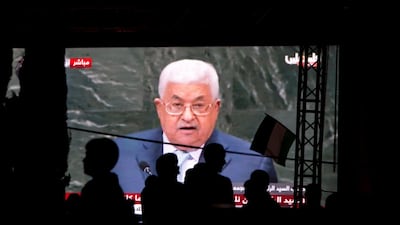Over six days, 193 countries are allotted time to give their yearly address to the UN General Assembly. Every year, there are a couple of hot issues that mean a handful of countries' leaders enjoy extra attention to their speeches.
This year, US President Donald Trump and Palestinian President Mahmoud Abbas were among the most anticipated – with US challenges to the multilateral system and Mr Abbas's expected response to American plans on the Arab-Israeli conflict making headlines.
The Brazilian and American presidents are the only two leaders who have their places confirmed, as first and second speakers in the General Debate. The rest are assigned according to a complex system depending on factors including the seniority of officials representing their countries.
For the vast majority of world leaders, capturing the world’s attention is difficult enough, especially when side events have become common in New York City during UN week.
__________________
Read more:
Iran has second secret atomic facility Netanyahu tells UN
Mahmoud Abbas tells UN: 'Jerusalem is not for sale'
Saudi's Al Jubeir: We are committed to a political solution in Yemen
__________________
This year, 316 side events meant that many world leaders and ministers were hardly in the UN General Assembly hall during speeches, with note takers filling their seats. Surprisingly, as more high-profile events crop up some leaders are skipping the UN altogether.
Canadian Prime Minister Justin Trudeau did come to New York and held bilateral meetings, but chose his Foreign Secretary Christina Freeland to address the General Assembly. He preferred to speak at the Nelson Mandela Peace Summit and Bill and Melinda Gates Goalkeepers summit.
So, how can countries make sure their message is heard by at least some of those attending? One way is to have the head of state present, ensuring they are among the first to speak in the roster of countries addressing the UN.
The art of the speech is crucial. The right time and tone is vital. Time-keeping seems to be one of the biggest challenges for world leaders in keeping within the 15-minute limit – especially for those who veer from prepared remarks.
Some leaders who speak quickly or have difficulty being articulate usually leave translators grappling with how to deliver their address.
Some have learnt to make a declaration or take a position not yet heard to get media attention. For example, France’s Emmanuel Macron made headlines when he said on Tuesday that trade deals should not be struck with countries who don’t adhere to the Paris Climate Accords – in an indirect but obvious attack on the US.
Israeli Prime Minister Benjamin Netanyahu started his speech this year with the statement: "What I am about to say today has not been shared publicly before" – in reference to his declaration that Iran has a secret nuclear programme. He has also been known to use props, including this year's picture of "secret atomic site" in Iran, complete with Google co-ordinates.
Palestinian President Abbas caught everyone's attention when he started his speech with the line: "Jerusalem is not for sale."
Personalising remarks can make them feel closer but should not be excessive.
The President of Ecuador, Lenin Moreno, spoke of the pain caused by his disability to drive the point home on the need to protect people with special needs. But details of “painkillers, IV drips and extreme pain” left some listeners baffled.
Another tip to ensure a speech is heard is to decide who will give it and when. Until Thursday, three days into the start of the general debate, Iraq had not been set a time to speak as its representation was still unclear with the delay in forming a government.
But most importantly, the art of the speech depends on the message being delivered.

